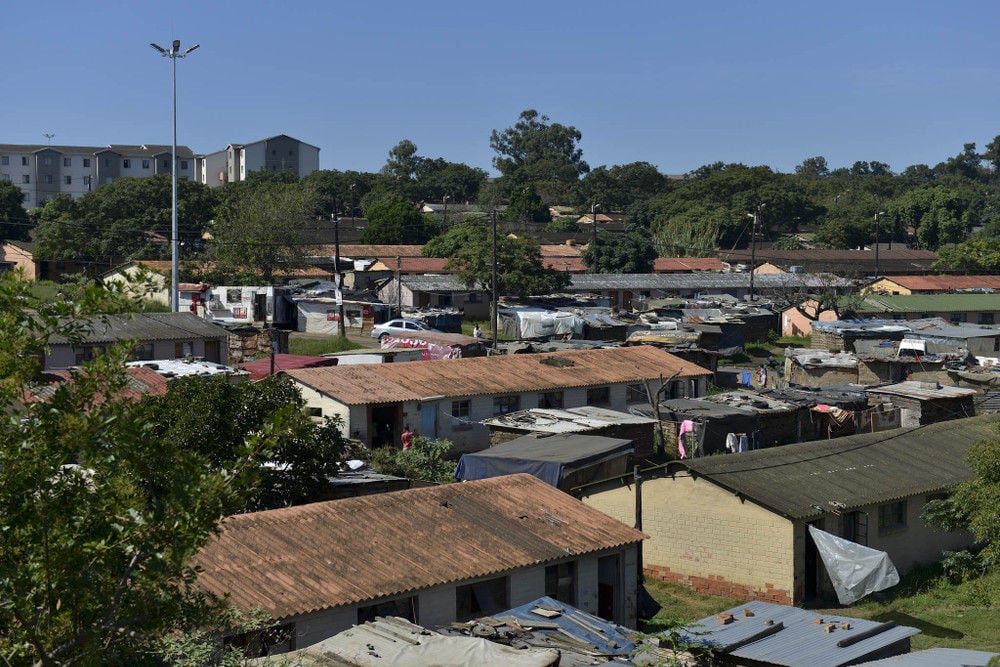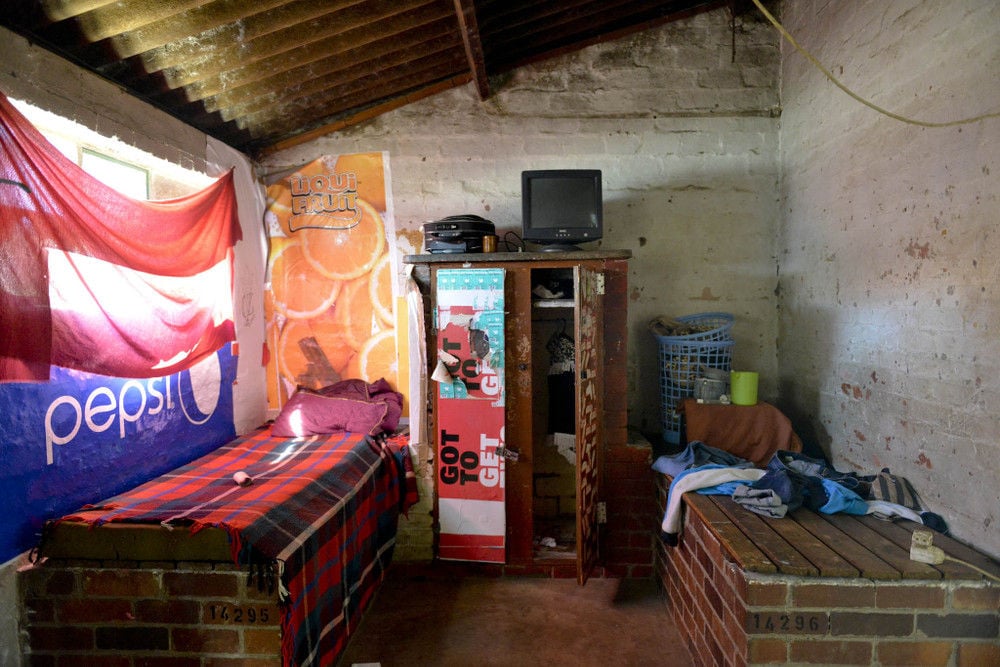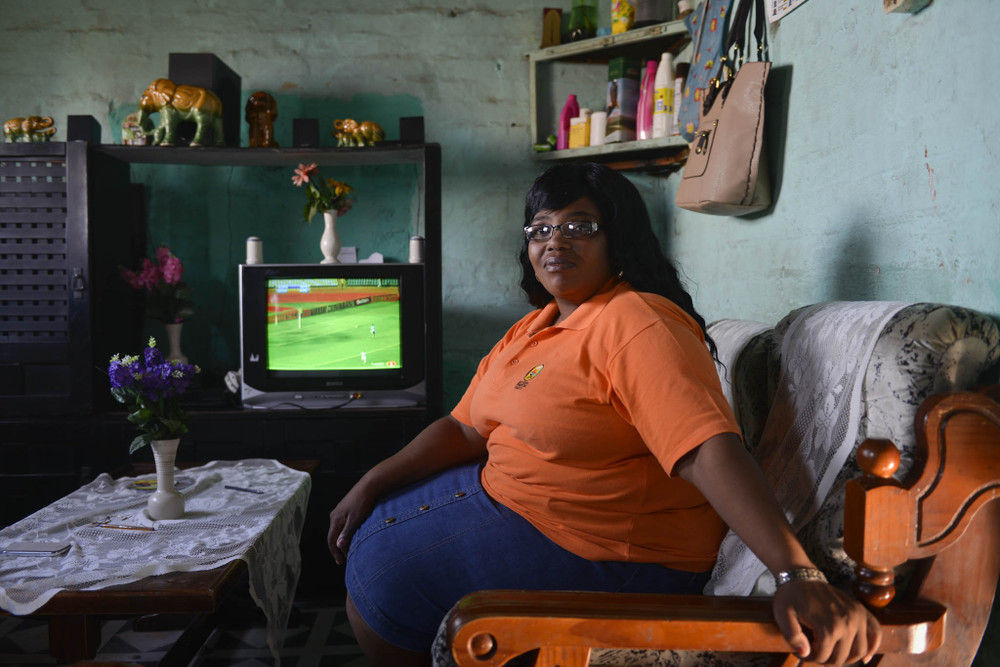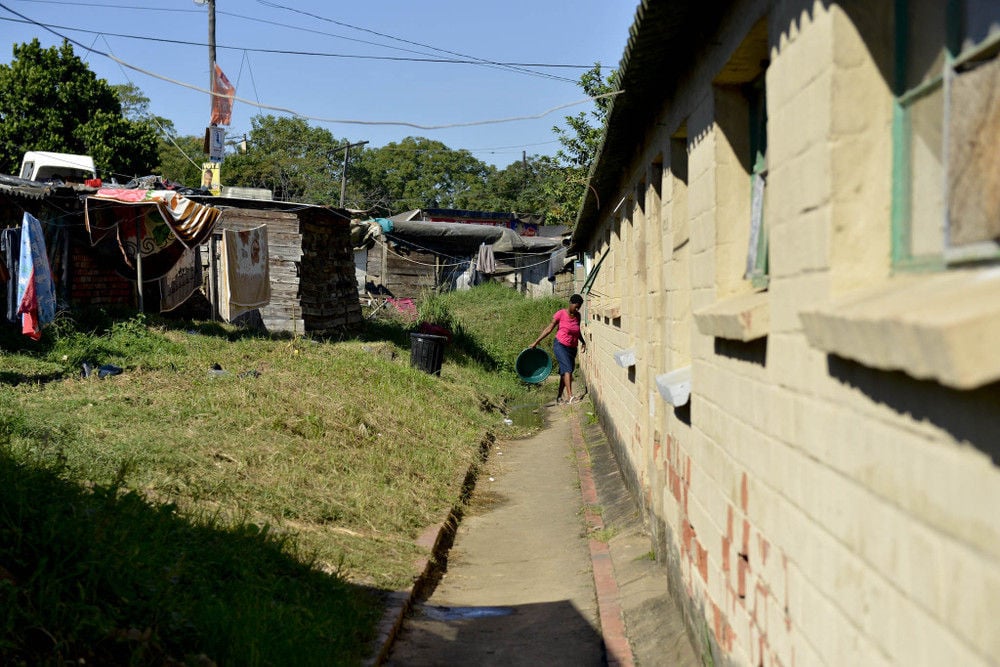Police minister Nathi Mthethwa was among the inter-ministerial committee that inspected the notorious KwaMashu hostel.
When the inter-ministerial committee responsible for the general elections strode into the dense and vast KwaMashu hostel north-west of Durban, many of its residents were away on Easter break. The committee, which went on a walkabout through several shack-laced blocks under heavy police guard, included Police Minister Nathi Mthethwa, Security Services Minister Siyabonga Cwele, and Independent Electoral Commission (IEC) chairperson Pansy Tlakula.
Mthethwa told reporters, rather flatly, that security could be beefed up because "some levels of intolerance have been noticed". Tlakula merely said the electoral commission was ready to deliver elections on May 7, while KwaZulu-Natal MEC for community safety Willies Mchunu spoke with a bit more nuance, telling of plans to deploy 175 private sector lawyers to provide legal advice on the election processes inside voting stations. He also said 58 officials were to monitor policing immediately outside the voting stations, and 1 595 crime prevention volunteers would engage with communities outside the stations.

As the chair of the three-a-side talk shops – efforts by the ANC, the National Freedom Party (NFP) and the Inkatha Freedom Party (IFP) to bring peace to the violence-plagued hostel – Mchunu would have heard the horror stories of last month's ward 39 by-election, with allegations of intimidation, vote-rigging and out-and-out violence being levelled at the IFP.
It was the ward's second by-election since 2011, following the death and arrest of the two previous IFP councillors. In December 2012, Mduduzi Ngcamu won the ward with a 70% majority following a by-election forced by the abduction and murder of his predecessor Themba Xulu.

No end to violence
Protas Mbatha, an ANC member who fled the hostel after allegedly being shot at 11 times, said: "As it is now, there is no end in sight to the violence. I can say the three-a-side meetings established by Mchunu [to facilitate negotiations] are not working for the ANC. In one of the sessions, it was agreed that in the run-up to the last by-elections, we'd allow each party room to conduct the door-to-door campaigns without interference. We respected the IFP's time, but the IFP didn't respect ours. While we were on the door-to-doors, we heard gunfire and they threw stones at us.
"Over and above that, there's a hit list, but we don't hear anything from the police about it because people are continuing to die. Two weeks ago, we buried one of our members who was on that list."
The athletic, clean-shaven Mbatha says there are known gunmen residing in sections of the hostel and there are others who come and go depending on the assignment.

He says he was leaning sideways against a wall when he was shot at the back of the head several times. He fell down from the initial salvo that grazed his head and sustained more shots as he fell down.
"Police usually say there is no evidence, even if we know the people that shot at us. I've even asked them what it takes to put together an identikit of the person and offer up a reward because surely that would solve the problem."
Mbatha, a former hostel block chairperson, is a recent convert to the ANC. So blinding is the violence (with eight people having been murdered this year alone), that even as the country nears a national election, the politics spoken here is not one of the wider country's issues or party policies.

Political benefits
Jabu Mncwango, who meets me on a busy hostel thoroughfare dressed in an orange NFP golf-shirt says the main cause of the violence is the long-established system of dispensing patronage that is controlled and jealously guarded by the IFP, for whom ward 39 represents the party's only stronghold in the eThekwini Municipality.
"There is a system here that dictates that if a municipal project comes in, certain people expect to benefit personally from it," she says from her lounge in one of the old hostel blocks. "So before, it was the IFP that was benefiting from the projects, as the ward was in their control. After the last councillor was arrested [on unlicensed firearm charges], the three public representative councillors [from the NFP, ANC and IFP] were working in conjunction. If a project came, such as a toilet fitting or the floodlight instalment project, it would have three community liaison officers so that members of all three parties could divide the work equally among the members. It was a way of curbing violence by making sure no-one felt left out in the cold."

IFP block chairperson Sifiso Sibiya rubbished claims that the IFP was responsible for killings in the hostel and the rigging of elections, saying that if incidents had occurred, they were the result of people who were not politically educated and therefore were intolerant.
"If people have to resort to violence, it points to a lack of maturity, because violence won't lead to a lasting solution. In our roles as block chairmen, we try to deal with everybody respectfully."
Sibiya said the election of a new ward councillor would bring stability to the ward. What all the parties agreed on was that it was the quality of policing that could go some way in resolving the violence, not the number of deployed police officers.

(Pictures by Delwyn Verasamy)